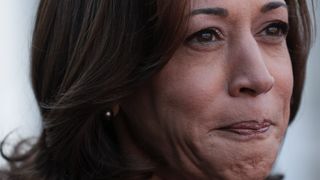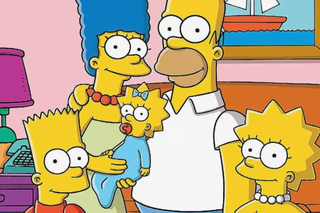US Vice President Kamala Harris and her team no doubt counted the Democratic National Convention as another win in the near-flawless streak she’s enjoyed since announcing her candidacy six weeks ago.
Still riding high from the star-studded convention, which successfully deprived Donald Trump of media oxygen, Harris ticked off another all-important milestone by sitting down for her first televised interview on Friday morning (AEST).
The much-anticipated event was billed as a high-stakes moment for Harris, who has avoided extensive engagement with journalists since July and is known for her sometimes rambling “word salad” responses to questions. But for all the heightened scrutiny, in the end, the interview with CNN journalist Dana Bash was largely unremarkable.
Though Harris took some time to find her footing, unable to clearly answer Bash’s first question succinctly – about what she would do on day one of her presidency should she win – she quickly hit her stride and struck a tone that was self-assured, collected, and undeniably presidential.
When asked about Trump recently saying that Harris “happened to turn black”, she refused to give the issue more air time, responding, “Same old tired playbook. Next question, please.” And in a bid to speak to disaffected voters, Harris said she would reach across the political divide and appoint a Republican to her cabinet if elected — reviving a bipartisan tradition that was not embraced by Trump or Biden.
Trump quickly weighed in on Truth Social to slam the interview as “BORING!!!” But it’s likely “boring” was precisely what Harris’ team was aiming to achieve. For months, voters across the country have been voicing frustrations about the tit-for-tat nature of modern politics, with the broad message being that Americans are tired of partisan politics and want action over name-calling.
For her part, Harris’ performance was a far cry from Trump’s own sit-down interview earlier in the week – a rambling hour-long one-on-one conversation with TV personality Dr Phil.
During his interview with the psychologist best known for talking straight to wayward teens, the former president again stated he had won the 2020 election, blamed Biden and Harris for the failed assassination attempt on his life and denounced Harris as a Marxist.
Though her interview may have been unspectacular, Harris made no major missteps that could derail her current momentum. And she has now quieted Republican criticism that she has been “hiding” from the media ahead of the presidential debate scheduled for September 10.
Harris is no doubt enjoying her success, but for her to keep the momentum going, it’s essential that the dust settles fast, and that her team quickly comes back down to earth.
Even with a surge in the polls, Harris still faces an uphill battle when it comes to securing the kind of support needed to chart a course to the Oval Office.
Though she has quickly closed in on Trump’s lead in both national and swing state polling, her current popularity levels by no means guarantee a triumph in November. Real Clear Polling positions Harris with a lead of just 1.8 per cent over Trump in the national polls. By comparison, at this point in the 2020 race, Biden had a 7-point advantage over the then-incumbent Trump.
Revisiting Hillary Clinton’s run in 2016 would perhaps also ring alarm bells for Democrats. At this stage in her campaign, Clinton led Trump by 5 percentage points.
Circumstances might be different in 2024, but one thing continues to hold true: when Americans cast their votes on election day, Trump has repeatedly overshot pollster predictions. There are various explanations for this, but as US pollster Kristen Soltis Anderson noted in The New York Times, Trump and polls don’t necessarily mix because of the elusive “Trump factor”, and the unique “unpollability” of the Americans he inspires to turn out both for and against him.
To keep her lead, Harris needs to lay out a detailed policy platform instead of simply relying on broad messages of hope and freedom, reproductive rights, voting rights, climate action and “building up the middle class”. Though specific policy proposals would provide Republicans with more material for targeted criticism and attacks, they would also allow voters to know who and what they are voting for on election day.
In many ways, Harris’ toughest challenges still lie ahead. So far, her words have been carefully curated by speechwriters and delivered with the security of a teleprompter. That changed following the CNN interview, and will change again come debate day.
Biden’s debate performance shows how one bad performance can upend the race overnight. Harris will no doubt use her strong prosecutorial skills to mount a convincing case against the Republican nominee, but she will be both on the offence and the defence — and voters will be watching to see how she fends off Trump’s attacks, which will undoubtedly be far more hostile and incendiary than the questions levelled by CNN journalist Bash.
The Democratic National Convention gave Democrats the opportunity to bask in optimism and celebrate the newfound hope of Kamala Harris’ rise to the top of the ticket. But the real test – converting her current momentum into voters turning out for her on election day – is still far from over.









